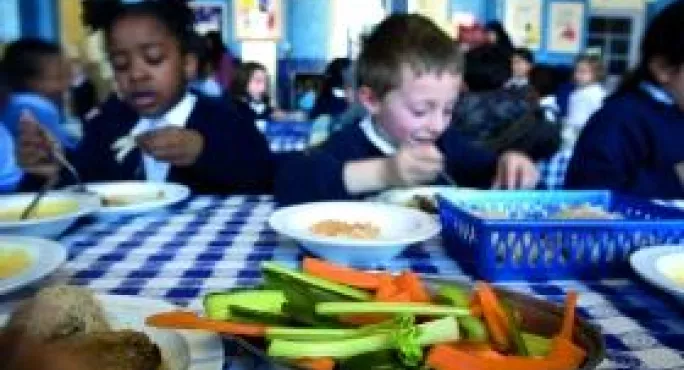A taste of things to come

I have never had a school lunch. Because my school day ended at around 1pm, I was lucky enough to come home to a healthy, home-cooked meal every day of my educational career. In fact, my school did not even have a dinner hall. Or a kitchen, for that matter.
So the idea that some children in Scotland queue for their only balanced, warm meal among hundreds of their peers in a large dining hall is shocking and scary to me. But there is no doubt that it is a reality. TESS often hears from teachers about students who come into school hungry because they were not offered breakfast, never mind a healthy packed lunch.
This lack of appropriate nutrition impacts on their ability to concentrate and learn in school, limiting their chances of reaching their full potential. And it can also have serious long-term effects on their health and development.
So offering free school meals to the children who are most in need no doubt benefits those students. And aside from the nutritional value of the meal, there are other advantages to eating in school. The experience provides an opportunity for children to improve their table manners and establish positive eating habits, for example.
There is also a social benefit. Interacting with friends and classmates while sitting down at a table is a very different experience to running around the playground with a bag of crisps.
So it is difficult to criticise the government’s announcement last month that free school meals are to be extended to every child in the first three years of primary school (see pages 16-18). The change will no doubt mean that more children get the school lunch experience, and the stigma of being a “free school meal child” will disappear.
But maybe it is not quite so black and white. We should not forget that free school meals for everyone means just that. Those from the most well- off backgrounds will benefit from a scheme that they do not really need. And this will use up scarce resources at a time when local authority budgets are under significant pressure and there have been widespread cuts to support staff and continuing professional development, among other things.
Some, on the other hand, think that the reform does not go far enough. Any social disadvantage does not suddenly disappear at the end of P3, and any feeling of embarrassment or stigma among those entitled to free school meals is only likely to increase with age.
But whether or not the new policy turns out to be a token gesture to grab headlines or the beginning of a long-term, larger scheme to ensure that all Scottish children eat healthily at least once a day, any attempt to improve children’s diet should be welcomed. Let’s be clear about what we’re battling. In the words of paediatrician Donald MacGregor: “What is the difference between a bogey and broccoli? Children won’t eat broccoli.” julia.belgutay@tess.co.uk.
Keep reading for just £1 per month
You've reached your limit of free articles this month. Subscribe for £1 per month for three months and get:
- Unlimited access to all Tes magazine content
- Exclusive subscriber-only stories
- Award-winning email newsletters



